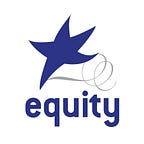LOVE LANGUAGE LESSONS
Acclaimed acting coach Miranda Harcourt explains how she has adapted the original love languages for use as valuable rehearsal tools.
I love systems. Actually, I love changing systems to suit my own purposes, so that actors and directors have more tools to use in the audition room, in rehearsal and on set. Here’s a system I use to create connection and to determine the shift between the actor’s behaviour and the character’s behaviour. It starts with the question: what is your love language?
Humans love to assess our own behaviour, to make discoveries about who we are and how we might change. After all, isn’t that why we make and watch movies, TV and theatre?
Here are the original five love languages, the ways we like to show and receive love from other people: acts of service, words of affirmation, physical touch, quality time and giving gifts.
And here’s how I use them as rehearsal tools for actors and characters: action, words, touch, time and gifts.
Which of these would you use to build a relationship with your partner? Which will your partner-actor best respond to? And would the characters you play make different choices?
ACTION
Action is doing stuff together, whether it is learning to ride horses and braid whips, as Benedict Cumberbatch and Kodi Smit-McPhee did for Jane Campion’s The Power of the Dog, or just watching the movies and listening to the music that your characters would watch and listen to.
Action is visiting the places that will help you build an internal landscape for your character and can also just be thinking about the character’s journey. British actor Daniel Kaluuya says of his work: “I do this exercise where I write everything someone says about you, everything you say about yourself, everything you say about someone else and write the facts. Your character lives in what you say about yourself or what someone says about you.” Director Mike Alfreds devised this approach. He calls these The Lists and talks about this exercise in his 2007 book, Different Every Night.
The other important component of the exercise is to write down the chunky actions your character undertakes, the big actions that define your pathway through the narrative. The Lists help you build a roadmap for character.
WORDS
You reminded me of a bird in the wind.
Words can be spoken or written. You might respond to a card or text message, or you might prefer conversation. I have seen directors radically misread an actor, raining down a storm of spoken instructions and complex vocabulary when a single image could work better.
Be curious with each other. Be generous. Be sensible. Be thoughtful. Maybe the person you are working with would respond best to music, or a photograph, or an offer to hold their hand.
TOUCH
Touch can be created by games and connection exercises — structured touch, in which it occurs within defined parameters. Ita O’Brien’s Intimacy on Set (IoS) guidelines are useful here. Visit intimacyonset.com
Between us is a space we need to cross and we use simple greetings to do this every day. Sometimes it’s a handshake, high five or a hug, fist or elbow bump. Increasingly, post-pandemic, we use greetings without touch, like a wave, a nod or the salutation namaste. Here is how Samoan author Albert Wendt describes the cultural concept le Va: “It’s the space between. The between-ness. Not empty space, not space that separates but space that connects.” The games I love to use can help you to employ touch to cross this space. You can find them all on my website.
TIME
Spending time together is the bedrock for creating connection and relationship, whether in life or art. I experienced the value of time in the rehearsal and shoot on a recent film, which I wrote about in my Substack article, Bulletin from a Rehearsal. Time spent together is not the same as structured time together − experiences, games, tasks, research, activities and interaction.
GIFTS
I love to use gift-giving as a pathway to connection. During preparation to play lovers in Justin Kurzel’s True History of the Kelly Gang, Thomasin McKenzie wrapped and gave George MacKay a tiny china horse to reflect the horse Ned gives Mary in the film. In an ad I worked on, we recreated Christmas and gave each other gifts.
Finally, ask yourself the following questions:
• Which of these languages would you use to create a connection with your castmates?
• What is your love language?
• What is your partner’s love language?
• What is your character’s love language?
MIRANDA HARCOURT WORKS ON SET AND VIA ZOOM AS AN ACTING COACH WITH RENOWNED ACTORS AND DIRECTORS ON FILMS AND TV SERIES ALL OVER THE WORLD. HER APPROACH IS BASED ON YEARS OF WRITING AND PERFORMING VERBATIM THEATRE IN PRISONS IN NEW ZEALAND, AUSTRALIA AND THE UK. MIRANDA HAS DEVELOPED A SERIES OF TOOLS AND EXERCISES FOR USE IN CLASS, IN THE REHEARSAL ROOM AND ON SET THAT GET ACTORS TO WHERE THEY NEED TO BE — FAST. FIND OUT MORE VIA HER FORTNIGHTLY SUBSTACK ARTICLES — CASE STUDIES, EXERCISES, TIPS, TRICKS AND PROVOCATIONS FOR ACTORS AND DIRECTORS. VISIT MIRANDAHARCOURT.SUBSTACK.COM
